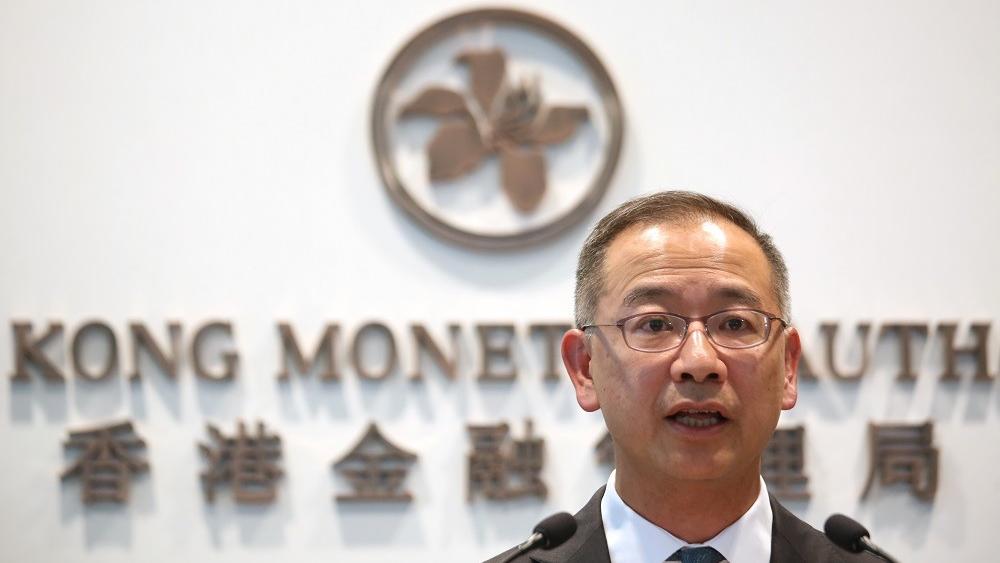 Chief Executive of the Hong Kong Monetary Authority Eddie Yue Wai-man speaks at a press conference in Hong Kong on March 16, 2020. (PARKER ZHENG / CHINA DAILY)
Chief Executive of the Hong Kong Monetary Authority Eddie Yue Wai-man speaks at a press conference in Hong Kong on March 16, 2020. (PARKER ZHENG / CHINA DAILY)
The Hong Kong Monetary Authority is working with other financial regulators in the city to follow up on the recommendations for using the renminbi in the trading of Hong Kong shares.
HKMA Chief Executive Eddie Yue Wai-man made this remark on Wednesday at the Treasury Markets Summit 2021, which was co-organized by HKMA and the Treasury Markets Association.
The summit will look into the latest developments related to Hong Kong’s financial and treasury markets, including the impact of COVID-19 on the global economic outlook and financial markets, as well as the central bank digital currency and its implication on the financial markets.
READ MORE: Offshore yuan debt issuance jumps to 263.6b yuan in 1H
In implementing the suggestions, we have to gauge the actual demand of issuers and investors. We also have to make sure how to reduce market segregation, and how to maintain (that) the renminbi price and (the) Hong Kong price of Hong Kong shares are aligned.
Eddie Yue, HKMA chief executive
“In implementing the suggestions, we have to gauge the actual demand of issuers and investors. We also have to make sure how to reduce market segregation, and how to maintain (that) the renminbi price and (the) Hong Kong price of Hong Kong shares are aligned,” Yue noted.
Yue, who is also the honorary president of the TMA Council, said that the suggestion will also bolster the development of yuan-denominated derivative products and investment products in Hong Kong.
Global usage of the renminbi makes up 15 to 20 percent of cross-border settlements. “In the aspects of liquidity, products and market structure, Hong Kong can play an important role to promote the popularity of yuan-denominated financial transactions”, the chief of the city’s banking industry regulator said.
Yue said Hong Kong has the largest offshore yuan liquidity and a vibrant renminbi currency exchange market propelled by various capital market connectivity programs, such as the Stock Connect and Bond Connect.
ALSO READ: Hong Kong should play a key role in digital yuan rollout
“The recent launch of the southbound trading of Bond Connect will enlarge (the) investor base and inject more liquidity in the secondary market that can foster the development of dim sum bonds (yuan-denominated bonds issued in Hong Kong),” Yue said.
Mutual collaboration between Hong Kong and the Chinese mainland authorities is vital to enable Hong Kong to become the nation’s safe and reliable cross-border platform to advance the international usage of the renminbi, Yue said, adding that Qianhai and the Guangdong-Hong Kong-Macao Greater Bay Area could serve as a pilot scheme to test cross-border renminbi usage involving Hong Kong.


